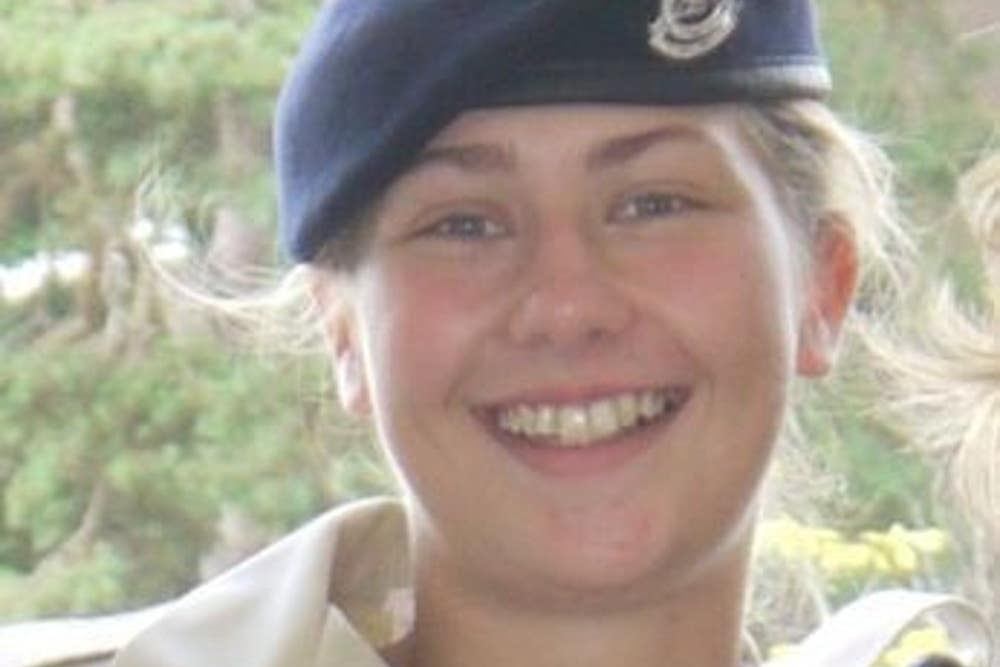Army cadet found hanged felt like she was ‘on trial’, inquest told
Olivia Perks, 21, was discovered dead at the prestigious Sandhurst military academy in Berkshire in February 2019.

An Army officer cadet found hanged in her room felt like she was “on trial” for spending the night in a colour sergeant’s room days before, an inquest heard.
Olivia Perks, 21, was discovered dead at the prestigious Sandhurst military academy in Berkshire in February 2019.
An earlier inquest hearing recorded her provisional cause of death as “asphyxia due to hanging”.
Her inquest at Reading Town Hall was told she had spent the night with Colour Sergeant Griffith after the Falklands Ball on February 1 2019.
Both of them denied any sexual activity had taken place.
The next morning she missed a parade and had to walk past colleagues in her ball outfit from the night before.
Later she hit her head against a bed frame and “trashed” her room in front of colleagues.
Her friend, Captain Madeleine Brownlow, told the hearing she thought Ms Perks had been “shouted at” by the regimental sergeant major on her way back from the colour sergeant’s room.
She added: “My impression is that she had been sort of interviewed and persistently questioned… over two days.
“She felt under the microscope. My impression was that they were trying to work out whether he was in the right or the wrong and whether he should remain in the academy.
“Her welfare was collateral damage.”
When asked whether this approach was too heavy-handed, she replied: “It is almost like she was on trial.”
She went on: “He definitely was a mentor figure and she felt a lot of guilt about what happened. She felt like she was going to cause him to lose his job.”
She said fellow officer cadets were banned from speaking to her about what happened by the platoon commander at a briefing to inform them Colour Sergeant Griffith had been suspended.
Captain Brownlow and another friend were eventually allowed to after challenging their superiors.
The inquest also heard Ms Perks’ friends were uncomfortable with her being back on parade just two days after she made a “significant” suicide attempt during a Royal Engineers visit in July 2018.
Captain Brownlow said she felt “squashed” after a meeting with a priest who provided informal welfare support when she and others were told Ms Perks was not “actually suicidal” and had been seen by medics.
She explained that the priest said, “do not worry about Liv, she is not actually suicidal, she has been seen by medical staff. She got so drunk she suffered from suicidal ideology which does not actually mean someone is going to take their own life and there is no need to worry”.
She added: “I felt quite squashed after it and kind of silenced”, but claimed the priest did provide some reassurance.
The inquest also heard little formal support was available to junior officer cadets, especially in their first term and it was not always clear what help was available.
On Monday, the hearing was told Ms Perks was deemed at “low risk of reoccurrence” after the suicide attempt at the Royal Engineers visit.
The inquest continues.
Bookmark popover
Removed from bookmarks